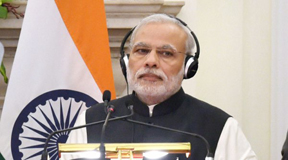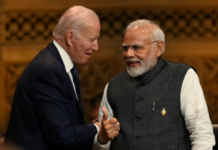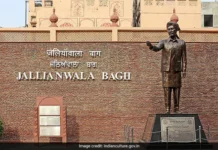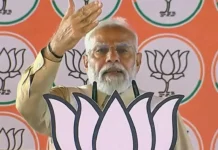 BEIJING: India should avoid “confusion” about its role in the Asia-Pacific and miscalculations over other regional actors’ actual strength and intentions as it may result in policy errors, a Chinese think tank said on Thursday.
BEIJING: India should avoid “confusion” about its role in the Asia-Pacific and miscalculations over other regional actors’ actual strength and intentions as it may result in policy errors, a Chinese think tank said on Thursday.
“India is trying to weave a Asia-Pacific diplomatic net that will not just ‘look east’, but also ‘act east’, an article titled ‘India seeks clear role in future Asia-Pacific’ published in the state-run Global Times on Thursday said.
India’s current active diplomacy suggests the country’s leaders are well aware it cannot afford to be left behind as a major player in the Pacific, it said.
India’s policy not only emphasize its balanced interactions with big powers like the US, China and Russia, but also focuses on rewriting relations with medium-sized powers like Japan, South Korea, Australia and other important regional players like ASEAN, the article written by Liu Siwei an assistant research fellow at the Institute of South Asia Studies, Sichuan University said.
But, India should avoid falling into confusion about its role in the present dynamic of the Asia-Pacific framework, it said.
“(Prime Minister Narendra) Modi was hesitant to attend the 2014 APEC Economic Leaders’ Meeting as an observer even after he received an invitation from Chinese President Xi Jinping in July when the two met in Brazil, which demonstrates India’s ambiguity about seeing itself as an Asia-Pacific power,” it said.
“Given that India is not a direct Pacific nation, India’s leaders should understand that a possible confusion over its role could cause short-sightedness of related policymaking,” the article said.
“Another important theme for India’s policymakers is avoiding possible miscalculations when they evaluate other Asia-Pacific actors’ actual strength and intentions”.
“India should carefully calculate the other powers’ role since any possible miscalculations may result in policy errors.
“For example, if Indian officials are divided regarding whether Beijing is a potential partner or a persistent problem, it will cause difficulty for India’s policymakers in making the best choice, particularly when India faces some questions such as whether it is willing to accept Beijing’s invitations to regional economic interactions like the 21st Century Maritime Silk Road (MSR) project,” it said.
India has even reached out to small countries like Fiji because of their geopolitical positioning; it said referring to Prime Minister Modi’s recent visit to the region.
“India’s policy seems like a good choice for the country to meet the demands of the complicated geopolitical realities in this region, marked by trends such as China’s rise, the US rebalancing strategy and the growing importance of maritime issues.
“India’s current pragmatic diplomacy could be very helpful in creating a flexible strategic space for it to pursue its interest in this region,” it said.–PTI






